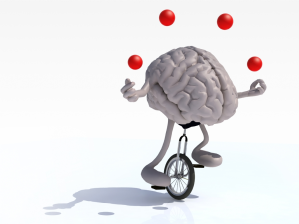Cognitive Function
Cognitive Function
How often do you get pissed off by interruptions and distractions? You know, when you’re zoned in on something, in a state of flow, and something happens to break the flow? Personally, when I’m writing code, I have to be in a quiet place, by myself or with my pair or mob, else I can’t get anything done for the continual distractions.
This is but one example of how easily cognitive function can be impaired.
Common sources of cognitive impairment:
- Distractions and interruptions
- Stress (specifically, negative stress a.k.a. distress) Cf Amygdala Hijack
- Tiredness, fatigue, lack of sleep.
- Multitasking
- Poverty
- Diet
- Shift patterns
- Noise and other forms of environmental stressors (lighting, odours, vibrations, exposure to particulates, elevated carbon dioxide, etc.)
- Physiological issues (such as colds and flu, hypoglycemia, aphasia, depression, dehydration, hypertension, obesity, trauma, diabetes, Parkinson’s, POTS, dementia, hypoxia, atrial fibrillation)
- Substance abuse (drink, drugs, etc. – short and long term effects, chronic and acute)
Wow. That’s quite a list. Seems like almost anything can impair cognitive function.
Why Does this Matter?
So why does cognitive function matter. What’s the connection with knowledge work? I’ll spell it out in case it’s not clear:
Knowledge work – such as software development – by definition involves working with our brains. If our brains are performing well (i.e. effective or relatively high cognitive functioning) then we can expect our work to go well, things to get done quicker, with fewer errors, and so on.
Conversely, when our cognitive function is impaired, our brains will take longer to accomplish tasks, come up with less effective solutions, commit more errors, and generally perform more ineffectively.
It’s also likely that with impaired cognitive function we’ll be less reflective, with less energy or capacity to spend on thinking about our work, our relationships, our behaviours, our practices, our customers, possible innovations, our needs and the needs of others, etc..
Does it sound to you like non-impaired cognitive function is something worth having? Something worth paying attention to?
Paying Attention?
So how many folks – managers, workers, organisations – pay any attention AT ALL to folks’ cognitive functioning in the workplace or whilst working? I’d suggest the answer is none, or as near none as makes no difference.
Which seems strange to me, if we truly seek our collaborative knowledge work (and workers) to be as effective as possible. Of course, that objective may be a false assumption. Maybe blissful ignorance and indifference is preferable to paying attention and taking action? Given the reluctance I’ve encountered when broaching this subject, I suspect blissful ignorance and/or indifference holds sway.
How does it go in your organisation?
– Bob


I absolutely pay attention to these factors and have often asked people to take a break or go home when grinding on a problem without making progress. Sometimes just a walk or alternative activity is enough. Other times people need a more extensive break or vacation.
Individually, sleep and motorcycle rides are the main things that I must do in addition to general care which includes walking a decent amount and limiting ethanol intake to small and infrequent times.
Pingback: Five Blogs – 19 September 2018 – 5blogs